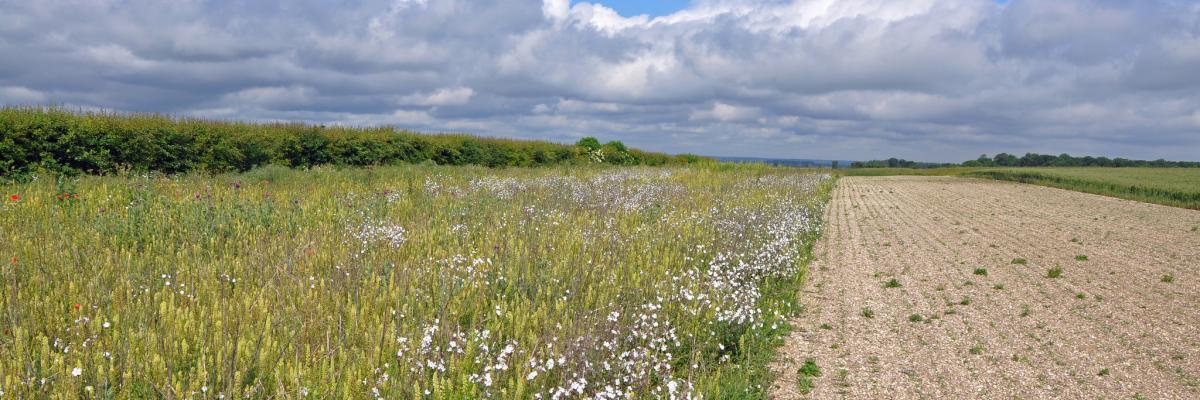

Sowing and Management of Multi-species Leys to Encourage Pollinators
IOTA Results of Organic Research: Technical Leaflet 10
Download the PDF
With 35% of global food production being dependent on pollinators, we need to do all we can to encourage them on farms. This leaflet provides practical tips on ways in which you can improve leys through combining different forage species. It is based on research carried out for the Defra-funded Legume LINK (LegLink) project, which showed the potential of improving forage production through mixing different species. Key points relevant to pollinators have been taken from the LegLink project and used as a basis for some recommended actions that you can apply in the field. These are focussed on helping you identify and select beneficial species and manage multi-species leys. Management recommendations for Countryside Stewardship scheme grant options relating to sowing and managing multi-species leys to help benefit pollinators are clearly described. The options covered are: Organic Multi-species Ley Option OP4, Nectar Flower Mix AB1 and Autumn sown Bumblebird mix AB16.
- Maintaining pollinator populations on your farm is critically important in relation to food production and wildlife diversity.
- Farmers have historically tended to rely on simple white or red clover leys to produce forage and build in fertility. The LegLink project showed how pollinators (and soil fertility) can benefit from mixing forage species and improving forage production.
- The All-species mix (of 14 legumes and grasses) developed in the LegLink project was shown to have a significant benefit for pollinators.
- When selecting forage species it is important to focus on increasing the diversity of flowers, ensure continuous flowering from April until August, and consider the farm’s soil type and the fertility building and forage yield requirements of the farm leys.
- While selecting suitable plant species is important, the way in which the leys are managed is also crucial.
- The Countryside Stewardship scheme specifies several options that are relevant to organic and conventional land regarding sowing and managing multi-species leys to help benefit pollinators. One of the key options described is based on the results of the LegLink project.
